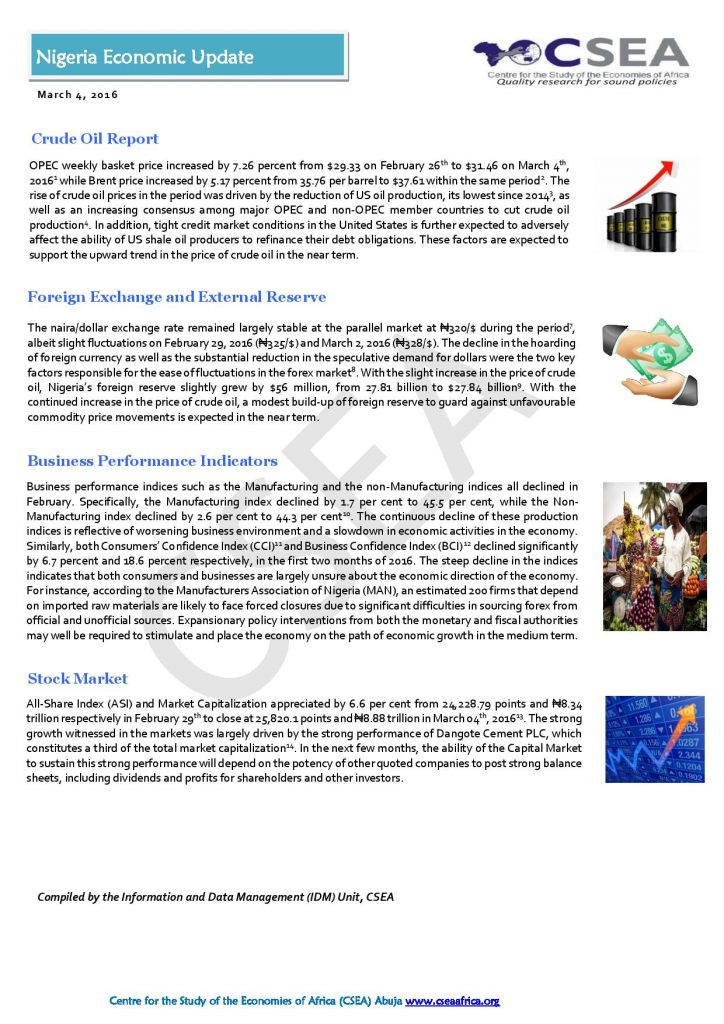Macroeconomic Report & Economic Updates

March 22, 2016
Nigeria Economic Update (Issue 12)
The naira/dollar exchange rate remained largely stable at the parallel
market at ?320/$ during the period7, albeit slight
fluctuations on February 29, 2016 (?325/$) and March 2, 2016 (?328/$). The
decline in the hoarding of foreign currency as well as the substantial
reduction in the speculative demand for dollars were the two key factors
responsible for the ease of fluctuations in the forex market8. With the slight
increase in the price of crude oil, Nigerias foreign reserve slightly grew by $56 million, from 27.81 billion to $27.84 billion9.
With the continued increase in the price of crude oil, a modest build-up of
foreign reserve to guard against unfavourable commodity price movements is
expected in the near term.
